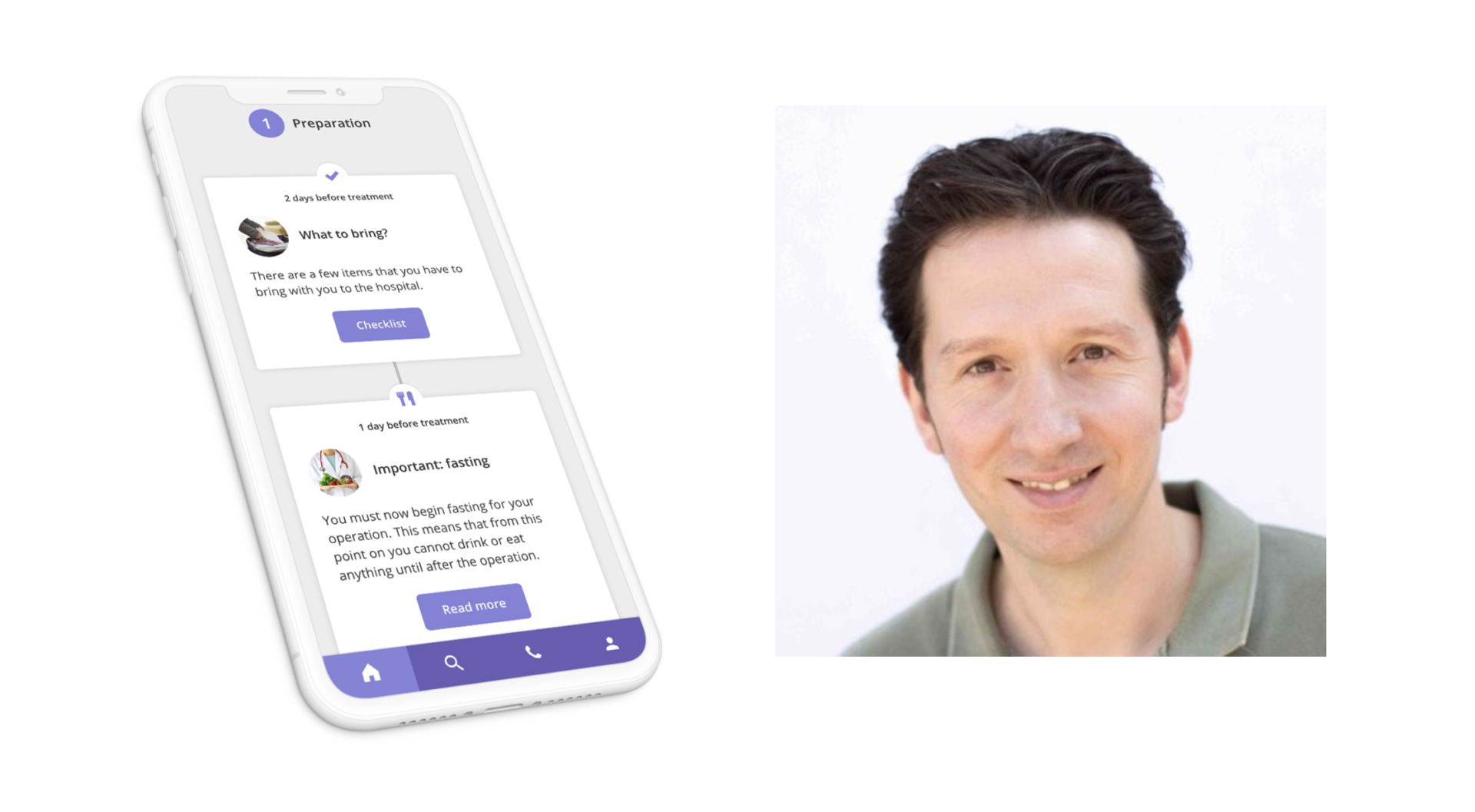The Influence of a Mobile App for Clinics on Process Efficiency and Patient Contentment
The Influence of a Mobile App for Clinics on Process Efficiency and Patient Contentment
Blog Article
The Future of Health Care: Why Clinics Required a Mobile App Today
As the health care landscape proceeds to progress, centers deal with installing pressure to adapt to client expectations for greater convenience and availability. The combination of mobile applications can serve as an important technique for improving patient engagement and streamlining procedures.
Altering Individual Expectations
As the landscape of healthcare advances, client assumptions are going through a significant improvement. Today's patients are significantly looking for benefit, accessibility, and customized treatment.
In addition, clients are coming to be more notified and encouraged, frequently investigating therapies and problems online prior to examinations. This enhanced awareness is coupled with a demand for transparency in medical care procedures, consisting of cost estimates and treatment choices. Therefore, service providers are forced to adjust by taking on electronic devices that enhance the patient experience.
The expectation for effective and prompt interaction has actually never ever been greater, with many patients considering responsiveness a vital element of high quality treatment. mobile app for clinics. In this progressing landscape, medical care companies need to identify these transforming assumptions and utilize mobile applications to foster a more patient-centric method, making sure that they not just meet but surpass the criteria set by today's educated consumers
Enhancing Client Interaction

Mobile applications facilitate interaction between individuals and medical care carriers, making it possible for real-time visit organizing, suggestions for medication adherence, and straight messaging attributes. These functionalities not only improve ease but also develop a feeling of liability amongst patients. Mobile applications can supply instructional content tailored to individual needs, helping patients better understand their conditions and treatment options.
The assimilation of gamification components within health care apps can likewise encourage clients to engage in healthy and balanced behaviors, enhancing positive way of living modifications. Ultimately, improving patient involvement with mobile applications leads to boosted health and wellness outcomes, better client contentment, and a much more collaborative medical care experience.
Simplifying Clinic Operations
Enhancing facility operations is essential for improving operations effectiveness and maximizing client treatment. The implementation of mobile applications can substantially reduce administrative burdens, enabling doctor to focus a lot more on person interactions. By automating visit organizing, patient check-ins, and invoicing procedures, facilities can minimize wait times and enhance general functional performance.
Mobile apps likewise promote real-time access to client documents, making it possible for healthcare professionals to make enlightened choices quickly. This immediacy not only improves the top quality of care however likewise lowers the possibility of mistakes connected with lost or dated info. Leveraging mobile modern technology sustains a more organized method to taking care of person follow-ups and treatment plans, ensuring that no important actions are overlooked.
This enables for prompt replenishment and assists avoid interruptions in individual treatment due to equip shortages. By integrating these performances into their everyday operations, facilities can develop a much more natural and effective atmosphere, ultimately leading to enhanced person results and complete satisfaction.
Improving Interaction Channels
Efficient interaction is frequently mentioned as a cornerstone of high quality medical care delivery. In today's hectic clinical environment, mobile applications can significantly improve interaction channels between facilities, patients, and doctor. By integrating mobile applications right into their procedures, facilities can help with real-time communications, guaranteeing that individuals receive timely info concerning their consultations, test results, and therapy strategies.
Mobile apps also equip individuals to connect straight with their medical care teams through protected messaging attributes. This straight line of communication fosters a sense of interaction and enables prompt clarification of issues, which can cause far better adherence to therapy protocols. Furthermore, push notices can remind individuals of upcoming consultations or drug timetables, lowering no-show prices and improving overall health and wellness end results.

Remaining Competitive in Medical Care
In a swiftly evolving health care landscape, companies should focus on development and flexibility Bonuses to keep an one-upmanship. The description assimilation of mobile applications into health care solutions is no longer optional; it is vital for facilities aiming to improve person engagement, improve procedures, and boost overall service shipment.
As individuals significantly count on digital systems for wellness monitoring, clinics that fail to embrace mobile innovation threat falling back. A properly designed mobile app can provide functions such as visit organizing, telemedicine appointments, and accessibility to clinical documents, giving patients with benefit and promoting loyalty.

Rivals are additionally purchasing mobile services, so staying ahead calls for continual renovation and remaining notified about technical developments. Facilities need to not only carry out mobile applications but additionally participate in routine updates and refinements. Inevitably, the successful combination of mobile technology will certainly identify forward-thinking health care companies and set the standard for patient-centric care in an electronic globe.
Conclusion
In verdict, the assimilation of mobile applications in facilities is vital to attend to the progressing landscape of individual expectations. Eventually, the tactical application of mobile apps represents an essential step towards supplying tailored and obtainable medical care, consequently satisfying the requirements of today's empowered people.
Inevitably, improving client engagement through mobile applications leads to boosted health and wellness results, greater person satisfaction, and an extra collective health care experience.Mobile apps additionally promote real-time accessibility to client documents, making YOURURL.com it possible for health care professionals to make enlightened decisions quickly. In today's busy medical environment, mobile applications can dramatically improve communication networks between facilities, clients, and medical care carriers.Mobile applications likewise encourage individuals to interact directly with their medical care teams with protected messaging attributes. Ultimately, the critical application of mobile applications represents a vital step towards delivering individualized and accessible medical care, thus meeting the requirements of today's encouraged people.
Report this page